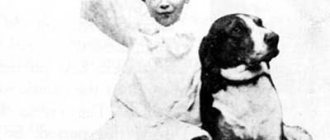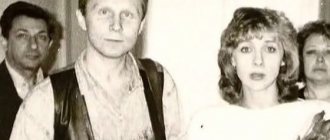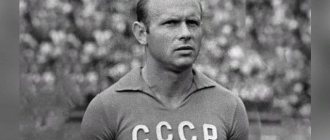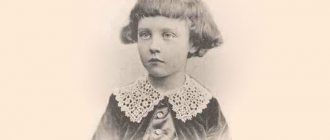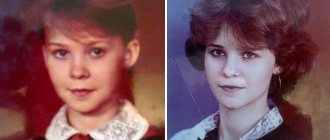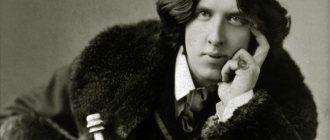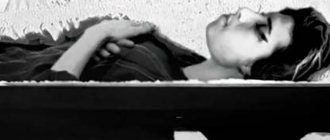Biography
Eduard Arkadyevich Asadov is an outstanding Russian poet and prose writer, a hero of the Soviet Union, a man amazing in fortitude and courage, who lost his sight in his youth, but found the strength to live and create for people.
Eduard Asadov was born in September 1923, in the city of Merv, Turkestan Autonomous Soviet Socialist Republic, into a family of intelligent Armenians. His father, Artashes Grigoryevich Asadyants (later changed his first and last name and became Arkady Grigorievich Asadov), participated in the revolutionary movement, was imprisoned for his beliefs, after which he joined the Bolsheviks. Subsequently he served as an investigator, commissar and commander of a rifle company. After retiring, Arkady Grigorievich married the mother of the future poet, Lydia Ivanovna Kurdova, and exchanged military shoulder straps for the peaceful status of a school teacher.
Poet Eduard Asadov
Little Edik's young years passed in the cozy atmosphere of a small Turkmen town, with its dusty streets, noisy bazaars and endless blue sky. However, the happiness and family idyll were short-lived. When the boy was only six years old, his father tragically died. At the time of his death, Arkady Grigorievich was about thirty, and he died, unharmed by bandit bullets and the hard times of the Civil War, from intestinal obstruction.
Edward's mother, left alone with the child, could not stand the situation, which reminded her of her late husband. In 1929, Lidia Ivanovna collected her simple belongings and, together with her son, moved to Sverdlovsk, where her father, Ivan Kalustovich, lived. It was in Sverdlovsk that Edik first went to school, and at the age of eight he wrote his first poems, and there he began attending a theater club. Everyone predicted a brilliant future for the boy, he was so talented, ardent, and versatile.
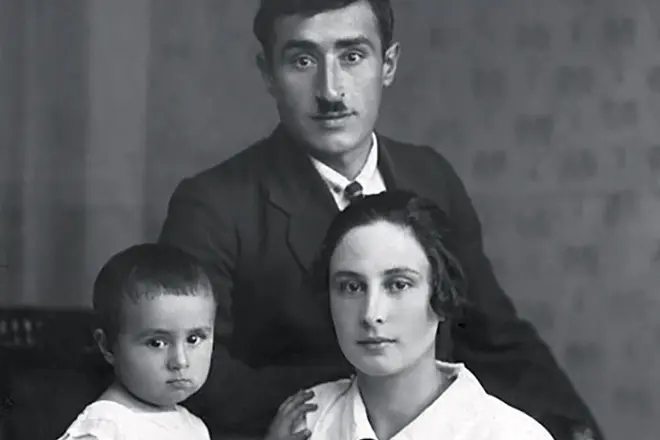
Little Eduard Asadov with his parents
Once he tasted the delights of the lines flowing from his pen, Asadov could no longer stop. The boy wrote poems about everything he saw, felt, loved. Edik’s mother was able to instill in her son not only a love of literature, theater, and creativity, but also a kind of admiration for true feelings, sincerity, devotion, and passion.
Biographers of Eduard Asadov claim that the reverence felt by the poet for real, genuine love was transmitted to the poet at the genetic level. His father and mother fell in love and got married, regardless of nationality and other conventions. However, then, in the Soviet Union, this did not surprise anyone. All the more typical is the example associated with the story of Edward’s great-grandmother. She came from a good noble family living in St. Petersburg, but fell in love with an English lord, with whom she linked her fate, contrary to public opinion and the will of her parents.
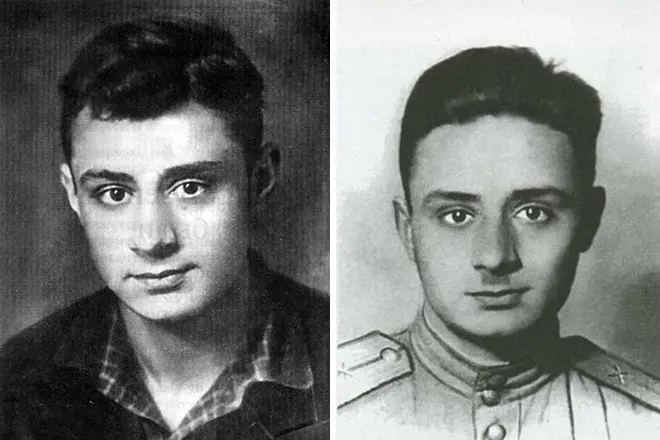
Eduard Asadov in his youth
After Sverdlovsk, the Asadovs moved to Moscow, where Lidia Ivanovna continued to work as a school teacher. Edward was delighted. He was fascinated by the large and noisy city; the capital won the heart of the young man with its scale, architecture, and bustle. He wrote about literally everything, as if absorbing in advance the impressions of what he saw and trying to record them on paper. These were poems about love, life, girls as beautiful as spring flowers, about cheerful people and dreams coming true.
After graduating from school, Eduard Asadov planned to enter a university, but he still could not choose a direction, hesitating between literary and theater institutes. His school's graduation ceremony was June 14, 1941. The young man hoped that he would still have a few days to think before submitting the documents. But fate decreed otherwise. The war broke the lives of millions of Soviet people, and the young poet could not escape his destiny. However, he didn’t even try: on the very first day of the war, Assadov showed up at the military registration and enlistment office and signed up as a volunteer for the front.
What does a young man from an intelligent family dream about?
Asadov’s father died when he was just over thirty - a man who survived years of battles died from a banal intestinal obstruction. After this, the mother could not stay in her previous place, taking her 6-year-old son, Lidia Ivanovna moved to Sverdlovsk, to live with relatives, and a few years later she moved to Moscow - she was a really good teacher, so she was offered a job in the capital.
In the Soviet years, no one thought about how justified “mixing of blood” was - in such a multinational country as the USSR, this was in the order of things. Asadov proudly said that he was an Armenian by nationality, although among his relatives there were people of completely different nationalities. But all of them, as if by choice, were highly intelligent, intelligent. And they also knew how to love like no one else.
An excellent example of this is the story of Eduard Asadov’s great-grandmother, a lady from the St. Petersburg secular society, with whom a real English lord fell madly in love. The young people could not be together, but they stepped over human and divine laws - just to be together.
So Eduard Arkadyevich inherited his admiration for true feelings at the genetic level. As for faith in God, he was always an atheist. And not at all because he was an ideological opponent of religion. The poet simply wondered how the creator, if he really exists somewhere, could allow such an amount of pain, grief, and suffering on our earth?
Later, Asadov said that he was ready to become a true believer if there was someone who could explain this paradox to him. But the young man firmly believed in kindness, which in this world must be many times more evil, otherwise the world is simply doomed to destruction. He hoped to meet true love, such as his parents had, he dreamed of his “beautiful stranger,” reading the poems of the classics and trying to create his own works on the same topic - Eduard Asadov wrote his first poems when he was only 8 years old.
Read full biography
At war
Eduard was assigned to the crew of the gun, which later became known throughout the world as the legendary Katyusha. The poet fought near Moscow and Leningrad, on the Volkhov, North Caucasus, and Leningrad fronts. The young soldier showed remarkable bravery and courage, and went from a gunner to a guards mortar battalion commander.
In between battles and shelling, the poet continued to write. He composed and immediately read poems to the soldiers about war, love, hope, sadness, and his colleagues asked for more. In one of his works, Asadov describes such a moment. Critics of the poet’s work repeatedly condemned him for idealizing the life of soldiers; they did not realize that even in dirt, blood and pain a person can dream of love, dream of peaceful pictures, remember his family, children, his beloved girl.
Once again, the life and hopes of the young poet were dashed by the war. In 1944, on the outskirts of Sevastopol, the battery where Assad served was defeated, and all his fellow soldiers died. In such a situation, Edward made a heroic decision that left him practically no chance of survival. He loaded the remaining ammunition into an old truck and began to break through to a nearby battle line, where the shells were vital. He managed to bring the car under mortar fire and incessant shelling, but on the way he received a terrible wound to the head from a shell fragment.
This was followed by endless hospitals and doctors throwing up their hands. Despite Asadov undergoing twelve operations, the traumatic brain injury he received was so serious that no one hoped that the hero would survive. However, Edward survived. He survived, but lost his sight forever. This fact plunged the poet into deep depression; he did not understand how and why he should live now, who needs a blind and helpless young man.
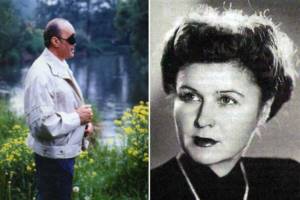
Eduard Asadov and Irina Viktorova
According to Asadov himself, it was the love of women that saved him. It turned out that his poems were widely known outside his military unit, they were distributed in lists, and these handwritten pieces of paper were read by people, girls, women, men and old people. It was in the hospital that the poet found out that he was famous and had many fans. The girls regularly visited their idol, and at least six of them were ready to marry the poet-hero.
Assadov could not resist one of them. It was Irina Viktorova, a children's theater artist, and she became the poet's first wife. Unfortunately, this marriage did not last; the love that Ira seemed to feel for Edward turned out to be an infatuation, and the couple soon separated.
Creation
At the end of the war, Eduard Asadov continued his activities as a poet and prose writer. At first, he wrote poetry “on the table”, not daring to publish. Once the poet sent several poems to Korney Chukovsky, whom he considered a professional in poetry. Chukovsky at first criticized Asadov’s works to smithereens, but at the end of the letter he unexpectedly summed it up, writing that Eduard is a true poet with “genuine poetic breath.”
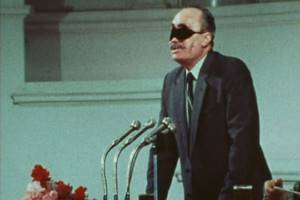
Speech by Eduard Asadov
After such a “blessing,” Asadov perked up. He entered the capital's Literary University, from which he successfully graduated in 1951. In the same year, the first of his collections, “The Bright Road,” was published. This was followed by membership in the CPSU and the Writers' Union, the long-awaited recognition of the general public and the world community.
In the post-war years, Eduard Asadov participated in numerous literary evenings, read poetry from the stage, signed autographs, and spoke, telling people about his life and destiny. He was loved and respected, millions read his poems, Asadov received letters from all over the Union: this is how his work resonated in the souls of people, touching the most hidden strings and the deepest feelings.
Among the most famous poems of the poet, the following should be noted:
- “I can really wait for you”;
- “How many of those”;
- "While we are alive";
- “Poems about a red mongrel”;
- "Satan";
- "Coward" and others.
In 1998, Eduard Asadov was awarded the title of Hero of the Soviet Union.
The poet, beloved by millions of ordinary Soviet people, died in 2004, in Odintsovo, near Moscow.
To be remembered - Granddaughter of Eduard Asadov
To be remembered - Granddaughter of Eduard Asadov
Granddaughter of Eduard Asadov: “Grandfather loved his wife Galina Valentinovna very much, although ... he never saw him”
Olga SMETANSKAYA, “FACTS” (Moscow) 09/25/2013
Exactly ninety years ago, the famous Soviet poet, Hero of the Soviet Union, author of poems and verses about love, friendship, war was born. The poems of the blind poet Eduard Asadov were never studied in school, but they are loved and known by millions of people in the post-Soviet space.
Maybe because he wrote about human feelings not in a pompous manner, but simply and accessiblely. Asadov's lyrics were incredibly popular among young people. More than one generation has cried over the fate of Assad's red mongrel, which the owner, having boarded the express train, left at the railway station: not know that somewhere along the sleepers, exhausted, a dog was running after the red flickering light, out of breath! Having stumbled, he rushes again, His paws are broken on the stones in the blood, That the heart is ready to jump Out from the open mouth! not know that the strength suddenly left the body at once, And, hitting his forehead on the railing, The dog flew under the bridge... The waves carried the corpse under the snags... Old man! You don’t know nature: After all, the body may be of a mongrel, But the heart
is of the purest breed! His granddaughter, MGIMO Italian language teacher Kristina Asadova, told FACTS about the difficult fate of Eduard Asadov.
gave up hope: “Everything will happen ahead. Everything except the light” “When grandfather read “Poems about the Red Mongrel” from the stage, people in the audience cried,” says Kristina Asadova
.
-And I cried. I remember it well—I was about seven years old then. Grandfather loved dogs, as they are very devoted to their owners. In his youth, he witnessed a story similar to the one he described in “Poems about the Red Mongrel.” The owner left the dog on the platform, and she ran with all her might after the departing train... she lost her sight for a year.
—Yes, it happened in 1944 near Sevastopol, of which my grandfather was an honorary citizen and even bequeathed to bury his heart on Sapun Mountain. For the feat he accomplished then, he was awarded the title of Hero of the Soviet Union. Carrying out a responsible task, together with a truck driver, they had to deliver shells to an artillery unit. The car came under fire. So the road was so badly damaged that grandfather had to get out of the truck and walk ahead, pointing the direction. A shell exploded nearby, and Eduard Asadov was seriously wounded by shrapnel. He refused the driver’s offer to return to the medical unit, although he was bleeding. The shells were delivered on time. True, grandfather was already unconscious.
Personal life
Asadov met his second wife, Galina Razumovskaya, at one of the concerts at the Moscow State University Palace of Culture. She was an artist at the Mosconcert and asked to be allowed to perform first because she was afraid of being late for the plane. Galina became a faithful companion, last love, muse and the eyes of a poet.
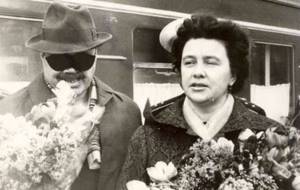
Eduard Asadov with his wife
She accompanied him to all meetings, evenings, concerts, supporting him morally and physically. For his sake, his wife, at the age of 60, learned to drive a car, so that it would be easier for Eduard Arkadyevich to move around the city. This couple lived in a happy marriage for 36 years, until Galina’s death.
Family life
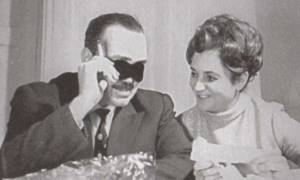
While still in the hospital, Edward learned that his poems were gaining popularity outside the military unit. His creations were circulated in correspondence, and he had fans who visited him in the hospital. Many were ready to connect their lives with the young poet-hero. This is how his first wife appeared in Asadov’s life, an actress who played in the Central Children’s Theater. Her name was Irina Viktorova. It was she who had a huge influence on Asadov’s further biography. She helped him study - she read aloud to him, since he himself, of course, could not read. At the same time, she studied herself. Largely thanks to Irina, Edward managed to graduate with honors. However, family life did not work out, and the couple divorced some time later.
Asadov met his second wife, Galina Valentinovna Razumovskaya, a master of artistic expression, in 1961, during a performance at the Moscow State University Palace of Culture. She became the poet’s last love, a true muse and eyes. To be able to help her husband, she is already at a mature age - at 60 years old! — learned to drive a car and received a driver's license. She was Asadov's constant and faithful friend for 36 years, until her death, being next to him every hour. Galina was his wife, his secretary, and his faithful companion. Asadov answered her with reverent love and endless tenderness.
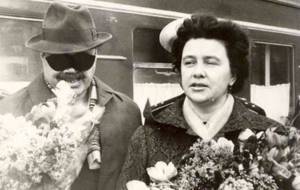
Eduard Asadov today
More than one generation of people has grown up with the poems of Eduard Asadov; it is not surprising that he is still loved, remembered and read by his works. The writer and poet passed away, but left behind a gigantic cultural heritage. Asadov is the author of almost fifty books and collections of poems. He published in magazines, wrote not only poetry, but also poems, essays, short stories, and novellas.
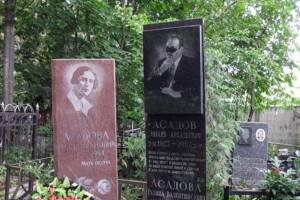
Grave of Eduard Asadov
The works of Eduard Asadov in the 60s of the last century were published in copies of hundreds of thousands, but interest in his books did not fade away even with the collapse of the USSR. The writer continued to collaborate with various publishers, and today, in 2021 and in 2021, his collections are being republished and sold out. Several audio books with the poet’s poems have been published, and many works, essays, and dissertations have been written about his work and life. The poet’s poems live in the hearts of people even after his death, which means he himself is alive.
Eduard Asadov: biography
Eduard Arkadyevich Asadov is an outstanding Russian poet and prose writer, a hero of the Soviet Union, a man amazing in fortitude and courage, who lost his sight in his youth, but found the strength to live and create for people.
Eduard Asadov was born in September 1923, in the city of Merv, Turkestan Autonomous Soviet Socialist Republic, into a family of intelligent Armenians. His father, Artashes Grigoryevich Asadyants (later changed his first and last name and became Arkady Grigorievich Asadov), participated in the revolutionary movement, was imprisoned for his beliefs, after which he joined the Bolsheviks. Subsequently he served as an investigator, commissar and commander of a rifle company. After retiring, Arkady Grigorievich married the mother of the future poet, Lydia Ivanovna Kurdova, and exchanged military shoulder straps for the peaceful status of a school teacher.
Poet Eduard Asadov
Little Edik's young years passed in the cozy atmosphere of a small Turkmen town, with its dusty streets, noisy bazaars and endless blue sky. However, the happiness and family idyll were short-lived. When the boy was only six years old, his father tragically died. At the time of his death, Arkady Grigorievich was about thirty, and he died, unharmed by bandit bullets and the hard times of the Civil War, from intestinal obstruction.
Edward's mother, left alone with the child, could not stand the situation, which reminded her of her late husband. In 1929, Lidia Ivanovna collected her simple belongings and, together with her son, moved to Sverdlovsk, where her father, Ivan Kalustovich, lived. It was in Sverdlovsk that Edik first went to school, and at the age of eight he wrote his first poems, and there he began attending a theater club. Everyone predicted a brilliant future for the boy, he was so talented, ardent, and versatile.
Little Eduard Asadov with his parents
Once he tasted the delights of the lines flowing from his pen, Asadov could no longer stop. The boy wrote poems about everything he saw, felt, loved. Edik’s mother was able to instill in her son not only a love of literature, theater, and creativity, but also a kind of admiration for true feelings, sincerity, devotion, and passion.
Biographers of Eduard Asadov claim that the reverence felt by the poet for real, genuine love was transmitted to the poet at the genetic level. His father and mother fell in love and got married, regardless of nationality and other conventions. However, then, in the Soviet Union, this did not surprise anyone. All the more typical is the example associated with the story of Edward’s great-grandmother. She came from a good noble family living in St. Petersburg, but fell in love with an English lord, with whom she linked her fate, contrary to public opinion and the will of her parents.
Eduard Asadov in his youth
After Sverdlovsk, the Asadovs moved to Moscow, where Lidia Ivanovna continued to work as a school teacher. Edward was delighted. He was fascinated by the large and noisy city; the capital won the heart of the young man with its scale, architecture, and bustle. He wrote about literally everything, as if absorbing in advance the impressions of what he saw and trying to record them on paper. These were poems about love, life, girls as beautiful as spring flowers, about cheerful people and dreams coming true.
After graduating from school, Eduard Asadov planned to enter a university, but he still could not choose a direction, hesitating between literary and theater institutes. His school's graduation ceremony was June 14, 1941. The young man hoped that he would still have a few days to think before submitting the documents. But fate decreed otherwise. The war broke the lives of millions of Soviet people, and the young poet could not escape his destiny. However, he didn’t even try: on the very first day of the war, Assadov showed up at the military registration and enlistment office and signed up as a volunteer for the front.
Quotes
Let it not be you who caused that quarrel and harsh words. Rise above the quarrel, be a man! It's still your love.
See the beauty in the ugly, See the floods of rivers in the streams! Whoever knows how to be happy in everyday life is truly a happy person!
To love is first of all to give. To love means to spill your feelings like a river, with spring generosity, to the joy of a loved one.
How easy it is to offend someone! He took and threw a phrase more angrily than pepper... And then sometimes a century is not enough to return an offended heart...
Whether a bird is born good or bad, it is destined to fly. This is not good for a person. It’s not enough to be born a human, you still have to become one.
Men, be alarmed! Well, who doesn’t know that a woman with a tender soul will sometimes forgive you a hundred thousand sins! But it doesn’t forgive NEGLIGENCE...
There are so many people with whom you can go to bed... This is how this gimmick winds up - They meet easily, they part without pain. All because there are many people with whom you can go to bed. All because there are few people with whom you want to wake up...
Bibliography
- "Snowy Evening" (1956);
- “The Soldiers Returned from the War” (1957);
- “In the name of great love” (1962);
- “In the name of great love” (1963);
- "I Love Forever" (1965);
- "Be Happy, Dreamers" (1966);
- "Island of Romance" (1969);
- "Kindness" (1972);
- "Winds of Restless Years" (1975);
- Canes Venatici (1976);
- "Years of Courage and Love" (1978);
- "Compass of Happiness" (1979);
- “In the Name of Conscience” (1980);
- "High Debt" (1986);
- “Fates and Hearts” (1990);
- "Lightnings of War" (1995);
- “Don't give up, people” (1997);
- “You don’t have to give away your loved ones” (2000);
- “The Road to a Winged Tomorrow” (2004);
- “When Poems Smile” (2004);

